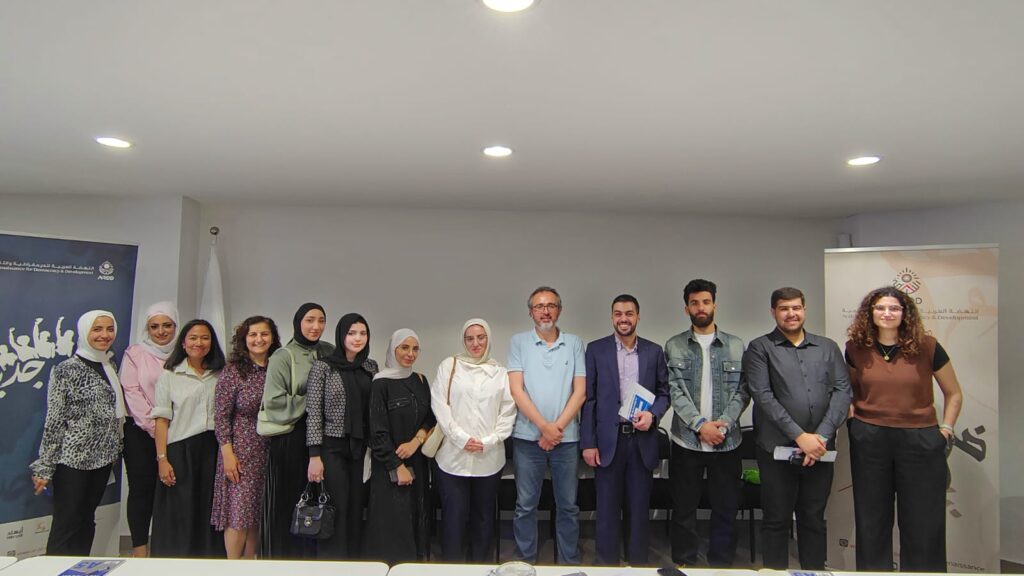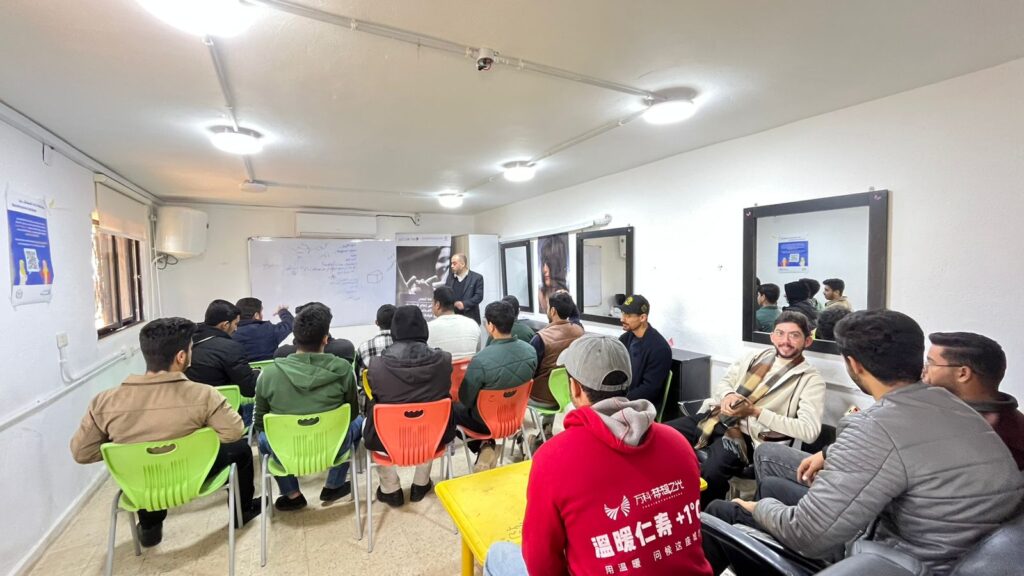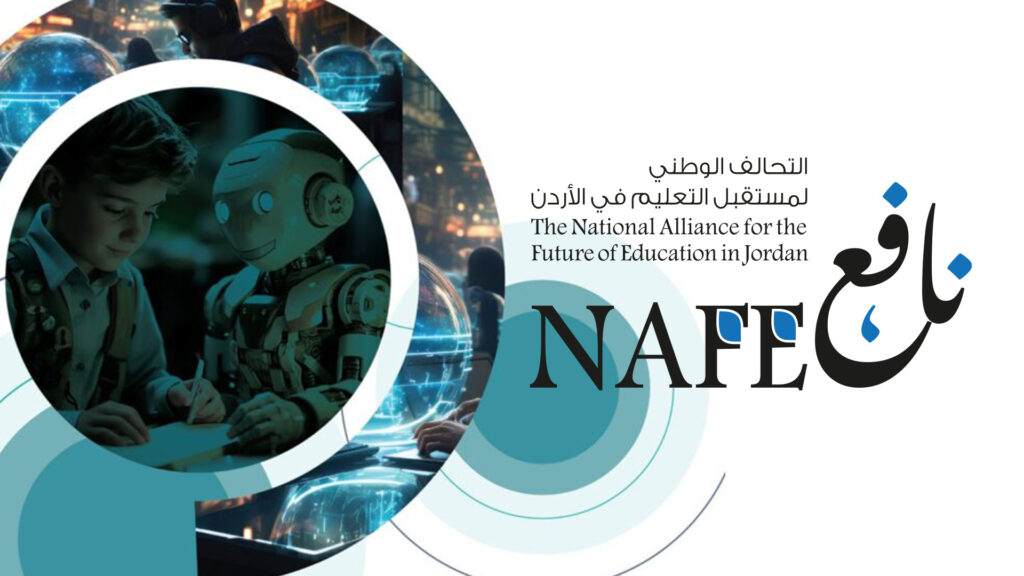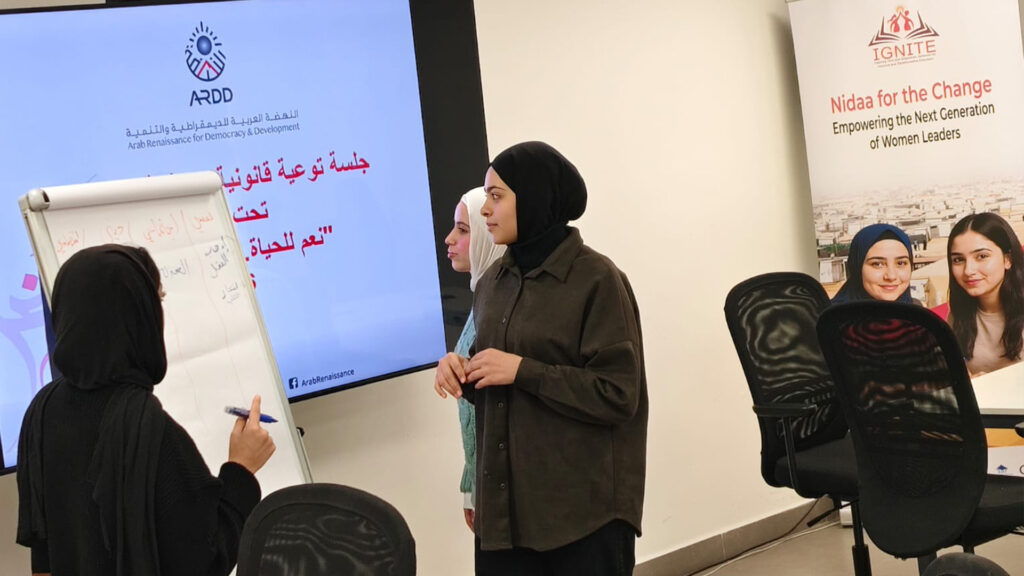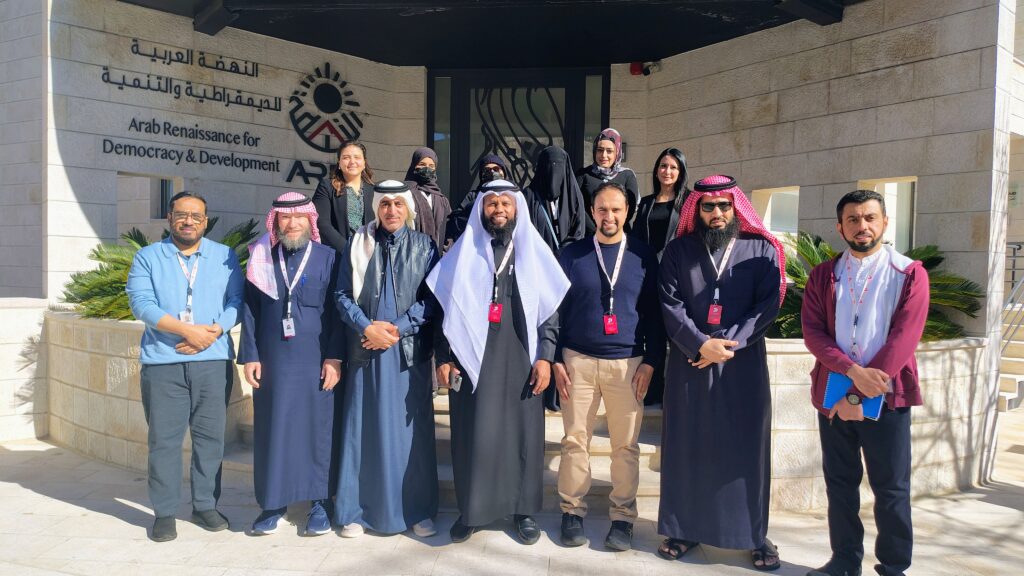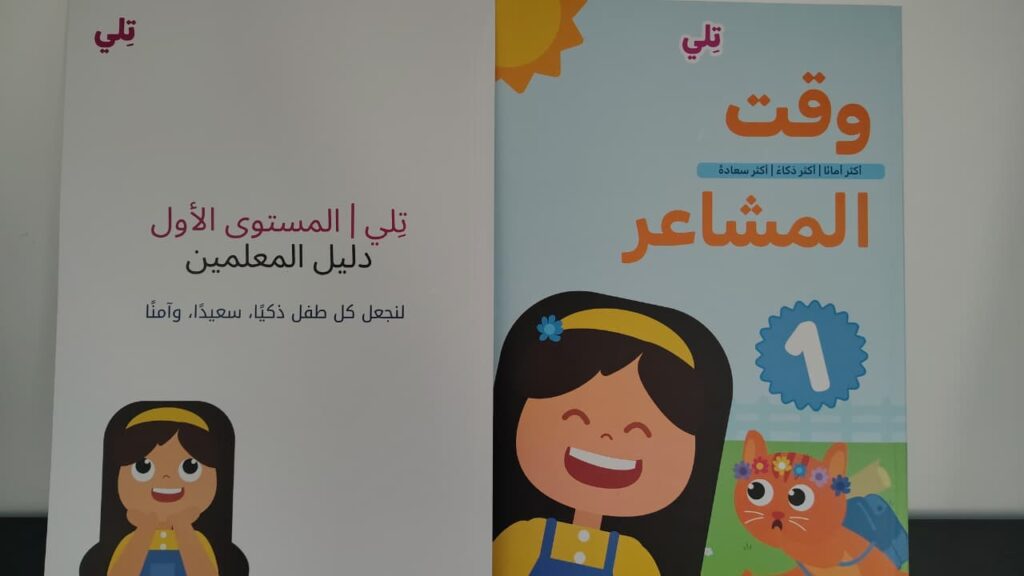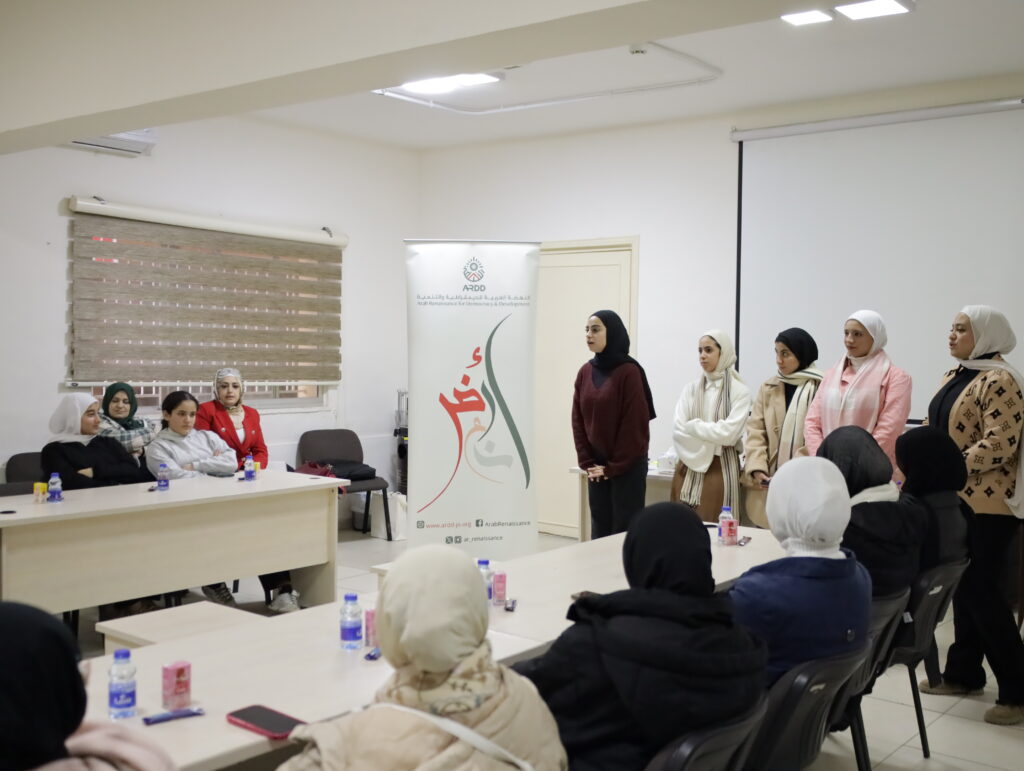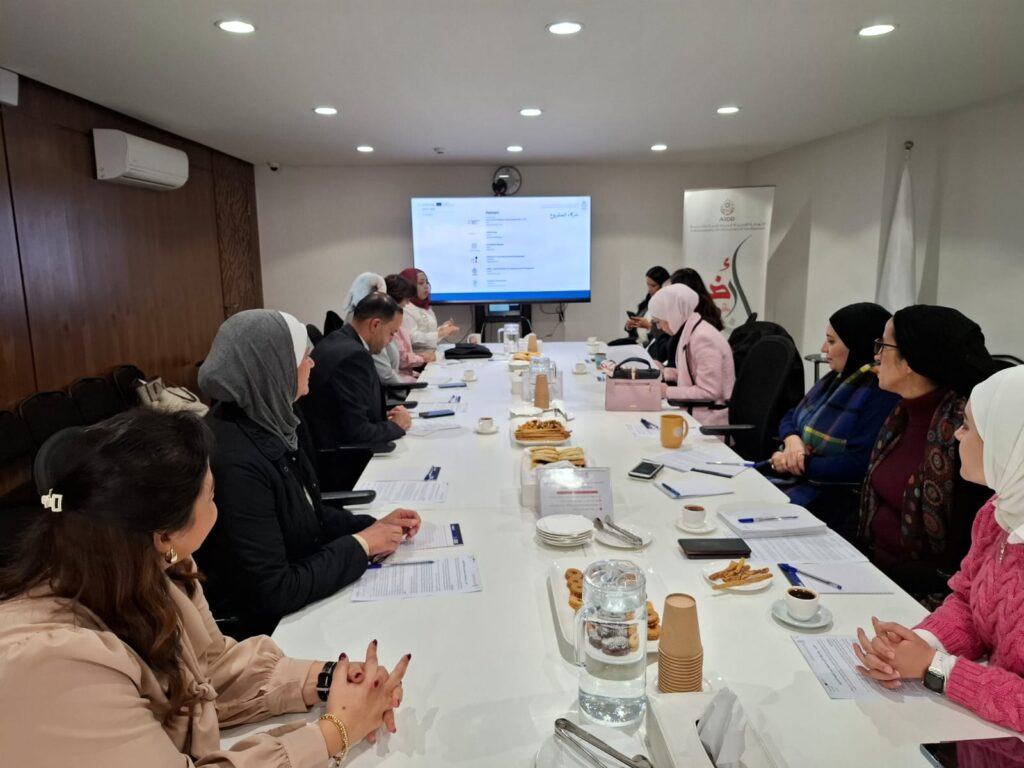Amid the complex political, economic, and social challenges facing Jordan and the wider region, the idea that “Youth are the engine of change” stands out as one of the most vital responses to current crises and a cornerstone for building a better future. Moving forward requires a radical shift in approaches, mindsets, and methodologies — a transformation that hinges on empowering a new generation of leaders and thinkers across all sectors.
This aspiration was echoed by participants in the first session Youth Participation Policy Lab in 2025, organized by the Arab Renaissance for Democracy and Development (ARDD) on Monday, May 12, as part of the “New Generation -GenG” project. Titled “Imagining Change: The Aspirations and Visions of Jordanian Youth towards a Better Future,” the session featured anthropologist and researcher Dr. Kamal Mirza, who holds a PhD in sociology and master’s degrees in social anthropology and modern media.
Implemented by ARDD in collaboration with the Center for Strategic Studies at the University of Jordan, the lab aims to foster civic and political participation among political science and law students at the university. It also offers practical exposure to key institutions and experts, while equipping students to amplify their voices in policymaking and engage constructively with decision-makers.
Speaking on youth and their role in social change, Dr. Mirza said: “Youth are not just the hope of the future; they are the energy of the present. We must provide them with tools and real opportunities for change, not burden them with empty promises.” He stressed that change is never accidental—it requires renewed critical awareness and deep engagement.
He continued: “The most important thing we can offer youth is training in analytical thinking and deep understanding of their reality, not simply encouraging them to demand change.” Dr. Mirza emphasized the need to rethink youth involvement in public and political life: “We need platforms managed by youth and for youth—not symbolic inclusion without tangible impact.”
Encouraging deeper engagement, he advised young people to build a foundational understanding of social change by reading and reflecting on the realities around them: “Reading deeply opens new doors to understanding. If we want real societal change, we must start with our culture.”
Dr. Mirza argued that shaping a better future starts with listening to youth: “They are not just bearers of hope—they are active partners in creating change. We must rethink how institutions engage with young people and support them in building their confidence as changemakers.”
The session saw enthusiastic participation from youth, who shared their perspectives on challenges they face—from access to education and meaningful political engagement to social justice. They underscored the need for more inclusive policies that empower youth and strengthen their role in decision-making.
As one participant put it: “We need spaces where we can freely express our ideas. Meetings like this make us feel heard—and remind us that change is possible when both will and opportunity exist.”
In conclusion, the youth presented a wide range of insights and recommendations. A common theme emerged: real change requires collective effort and shared responsibility. It cannot be imposed from the top down—it must be co-created through participatory policies, support for innovation, and a commitment to transparency and accountability. Only then can young people move from being recipients of challenges to active contributors to sustainable and stable solutions for the future.

